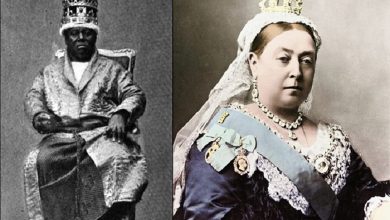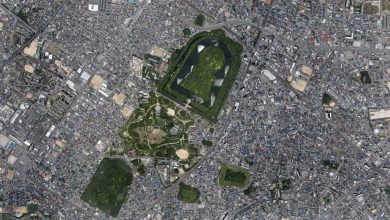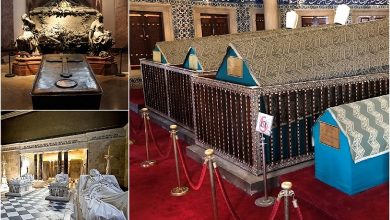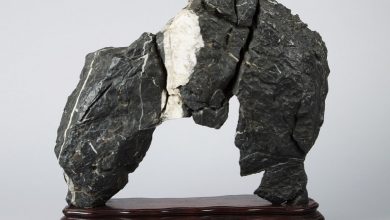Why Japanese Empress Masako is called Oriental Princess Diana
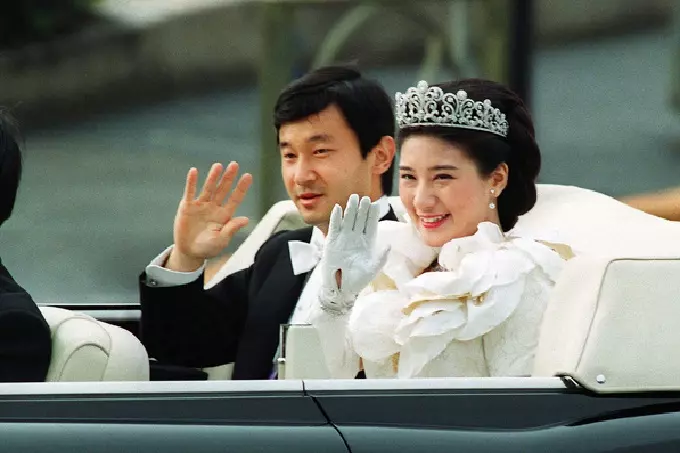
Every girl seems to dream of meeting her prince. Although there are not enough real princes for everyone, there are still lucky women who legally marry the heirs to the thrones. One of them is the current Empress of Japan, Masako.
True, her life turned out to be completely different from a fairy tale, and she is considered very unhappy and is even called the Eastern Princess Diana. True, she failed to obtain the title of queen of human hearts.
Didn’t want to be a princess
Masako Owada was born and raised in a diplomat’s family and was considered a commoner by the standards of Japan’s imperial family. However, her father was a high-ranking diplomat, he managed to visit many countries on duty, and Masako Owada naturally followed him everywhere, along with her mother and younger sisters, Setsuko and Reiko. The girl even went to a Moscow kindergarten; by the end of school, according to some sources, she already knew six languages.
The girl planned to follow in her father’s footsteps and become a diplomat. Parents tried to give their daughter a good education, she studied at Harvard, then at one of the Oxford colleges, however, she never graduated from the latter. But Masako Owada received a diploma from the University of Tokyo. During her student years, she met Naruhito, the crown prince. On that fateful day, 30 girls were invited to a reception in honor of the Spanish Infanta Helena, from among whom the future emperor had to choose his bride.
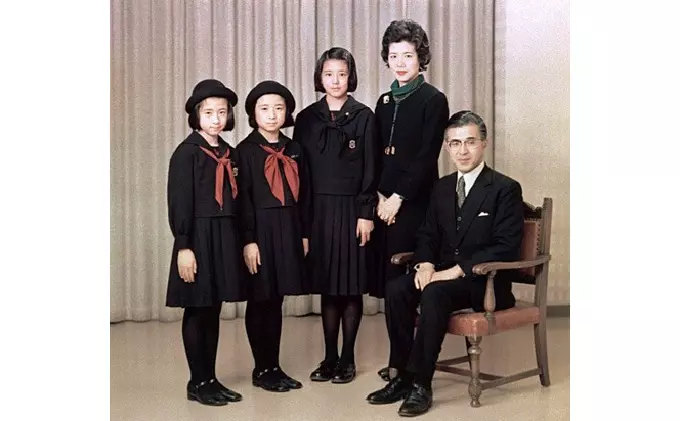
Some sources claim that Masako got on the list of invitees at the very last moment on the recommendation of a friend of the prince, and she had no idea that she was going not to a simple tea party, but to the real bride. There is also another version, according to which Masako, like all other contenders for the prince’s hand and heart, passed a very careful selection. The second option, although it looks probable, does not stand up to scrutiny. After all, Naruhito’s parents were opposed to Masako’s candidacy from the very beginning, primarily because of her grandfather Yutaka Egashira. He headed the Chisso company, which caused a serious environmental disaster that led to the death of people.
Whatever it was, but of all the girls who were present at the reception that evening, the crown prince chose Masako. Naruhito’s friends claimed that he fell in love with the daughter of a diplomat at first sight, and from the very moment he saw her, other girls simply ceased to exist for him. Ironically, it was Masako who least wanted to be a princess. She was going to make a career in the Japanese Foreign Ministry, and she was not ready to sacrifice her own dream for the future title of empress.
The proposals of the prince’s hand and heart were rejected several times, but he did not lose hope, and continued to touchingly care for the obstinate lover, hoping to achieve her favor sooner or later. Young people sometimes appeared together in public, but by the early 1990s, everyone was sure that Naruhito had given up trying to conquer the girl.
Nevertheless, in 1993, the Imperial Palace of Japan announced the engagement of the Crown Prince and Masako. This news came as a surprise to many, and there were persistent rumors among the people that the daughter of a diplomat gave her consent to marriage solely in exchange for the promise of her future husband to protect her peace and protect her from the attacks and discontent of his parents all her life.
Japanese Princess Diana
In June 1993, the marriage of the crown prince and his beloved took place, and Masako’s life changed dramatically after that. The once smiling girl became sadder, as if she was fading away before our eyes. This was due, first of all, to the pressure exerted on her by her husband’s parents. The imperial family still treated the chosen one of her sons unkindly, she was constantly hinted that she should give birth to her son as soon as possible.
Media representatives and ordinary people constantly looked for signs of pregnancy in Masako’s appearance: either the princess was too pale, or she had circles under her eyes, and the choice of low-heeled shoes was almost a guarantee of an imminent announcement of the upcoming replenishment in the family. But the long-awaited pregnancy did not come, and in 1999 it was reported that Masako had lost her baby at an early stage. And only two years after this sad event, the girl Aiko was born in the family of Prince Naruhito. However, this did not solve Masako’s problems, everyone still hinted to her that she also needed to give birth to a son.
The princess was desperately worried, she did not have the slightest opportunity to relax and enjoy life. She became sadder, more and more often she missed official events, and since 2003 she stopped appearing at them at all. In the end, her crowned husband had to admit: his wife was deeply depressed. He even publicly stated this and asked with understanding and delicacy to treat the problem of his wife, who could not adapt to life in the imperial family.
In 2006, two important events took place at once: a son was born in the family of Naruhito’s younger brother, who has now become the heir to the throne, and Ben Hills’ book “Princess Masako: Hostage of the Chrysanthemum Throne” was published in the West, which became the subject of discussion both in Japan and for her outside. The first event relieved the princess of the pressure and demands to give birth to a son. Masako gradually began to recover and even appeared at receptions.
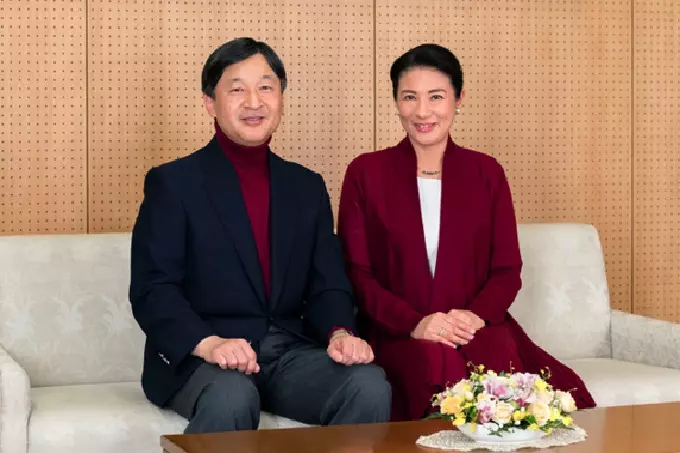
The release of the book provoked the most severe criticism and accusations of lies against the author in the Land of the Rising Sun. But abroad, the research of the Australian journalist aroused keen interest. They began to feel sorry for Princess Masako and even called the Japanese Princess Diana, who is forced to endure the dislike of her husband’s parents, obey strict rules and live in accordance with traditions. But no one even remembered that today’s empress had the main thing, the love of her husband, who supported his wife in everything and protected, as best he could, from negative emotions and some excesses against her from her relatives.
Not a victim of circumstance at all
Princess Masako has always had far more privileges than any other girl who entered the imperial family. She was allowed to skip protocol events, and visit her parents without asking permission from the emperor. In addition, she has earned a reputation among Japanese spenders. She felt great relaxing in expensive resorts and indulging herself in buying expensive things.
If we compare Princess Diana and Empress Masako, then the latter never became the favorite of millions, although she clearly had the prerequisites for this. At first, the Japanese treated her favorably, but the more reports of spending and her allegedly difficult position in the imperial family appeared, the less they sympathized with the wife of the crown prince.
For their part, they saw not a hostage of the Chrysanthemum Throne, but a somewhat capricious and often dissatisfied woman who does not seek to bother herself with her duties, and does not particularly like to take care of herself. They noticed the rumpled dress of the princess at one of the receptions, and the addition of a few extra pounds, and Masako’s yellowed teeth. The empress cannot be called an unfortunate victim of circumstances either. After all, she voluntarily agreed to become the prince’s wife, and he undoubtedly loves her still. At one time, the father of Prince Naruhito, Emperor Akihito, married a commoner Shodu Michiko, whom he loved until the end of his days.

